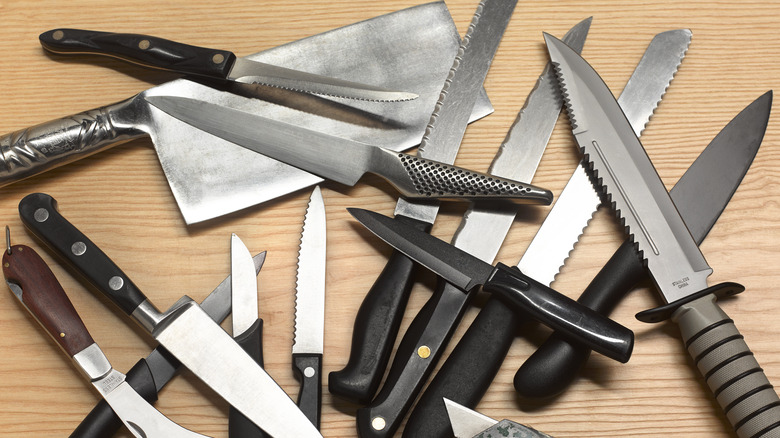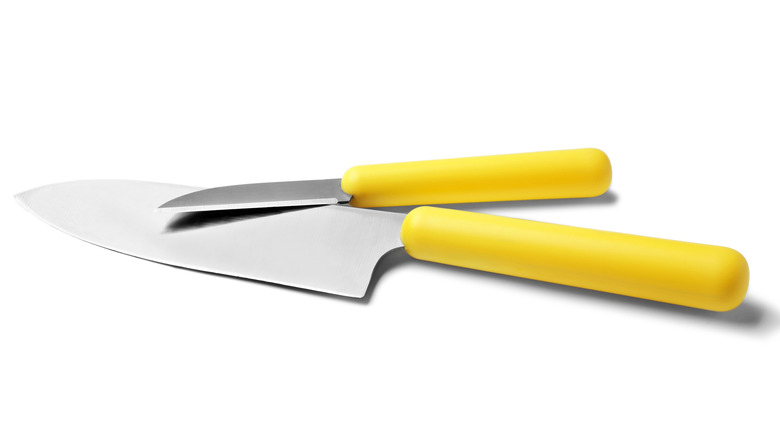Here's How Many Kitchen Knives You Actually Need
Based on the enormous variety of shapes, sizes, and blades that kitchen knives come in or with, it's easy to assume that you need one to slice, one to dice, one to mince, one to chop, and so on until your counters are lined with knife blocks and you need a color-coded system to remember what to use when. According to a culinary school graduate, however, the pros know the truth: you only need two kitchen knives — one big and one small (via The Kitchn).
The grad, Becky Duffett, writes that she was surprised she did not receive a whole slew of different tools and knives on her first day of class. It was an epiphany. "Professional cooks don't have more tools," Duffett says. "They don't even have more expensive tools. Honestly, they just have the right tools for the job."
Duffett's instructor recommended investing in one great chef's knife and one great paring knife, plus maybe a bread knife. This does not mean other knives don't have their purpose. The Manual breaks down MVPs in every department, from slicing cheese to deboning poultry, and if you do a lot of prep with certain foods, it might be worth finding out what knife is best for that skill or fare, like ceramic knives for seafood (via The Strategist). However, it's refreshing to know that you can simplify your kitchen tools all the way down to two jack-of-all-trades knives and be right in step with professional chefs. Efficiently cooking up great food does not require a whole rack of knives, just the perfect duo.
Why a chef's knife and a paring knife are the two essentials
"The one thing in my kitchen that I can't live without is a good, sharp, chef knife," chef Rahaf Amer once told Mashed. An 8" chef's knife is considered one of a chef's most necessary tools, thanks to its versatility. It's strong, but nimble for fast chopping, even with tougher foods. Meanwhile, a paring knife is its essential partner, as it can get into all those tighter spaces a chef's knife cannot. A paring knife works wonders for everything from mincing garlic to peeling fruits.
The most important thing to remember for stripping your knife collection down to these two (plus maybe a serrated bread knife) is to invest in high-quality versions that will last you a long time. Look for "forged knives" made from a single piece of metal, and consider the "tang," or how far the metal blade is situated into the handle. Full-tang knives are extra balanced and stable (via The Spruce Eats). You should also be aware of the knife's material. Stainless steel is usually best and sharpens easily, and that's important. Keeping knives sharp and storing them to maintain that sharpness ensures quality food prep and safety. Taking the time to buy the right knives and then care for them means one chef's knife and one paring knife will be all you ever really need to create restaurant-worthy fare.

